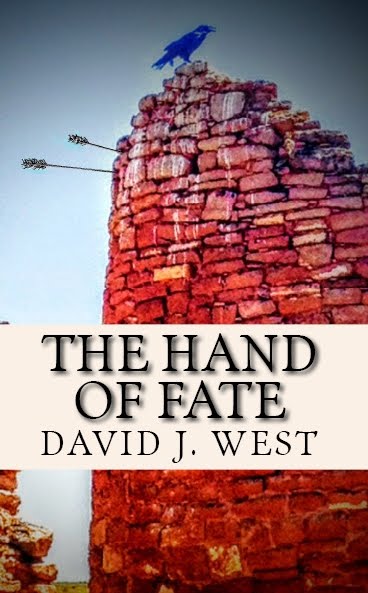
I recently read the wonderful Save the Cat by Blake Snyder. It is billed as the last book on screenwriting that you'll ever need.
That better be true.
Good thing I'm not working on screenplays anyway though.
The point is, it is a fantastic book when it comes to story structure and keeping to the beats in your story.
There are a number of things Snyder advises that I was very happy to find I did naturally = such as his "Save the Cat" theme - denoting having the main character do something at the beginning of your story to make the viewer/reader LIKE and ROOT for them.
The other big point I've been pondering is the root of everyone asking What is the story about. Snyder says he doesn't start writing anything without a logline - a simple sentence that says what the story is about in an enticing and (he recommends ironic) tone.
That hit me like a ton of bricks.
Because
I could not (at least off the top of my head) come up with a single sentence about Heroes of the Fallen & Blood of Our Fathers...yet.
At the Storymakers conference I ended up having Sarah Eden read that, "Heroes of the Fallen is a Book of Mormon historical with Pulp Fiction sensibilities," as I drew the winning name for a giveaway.
(I think a gal that also writes B of M fiction won my book, so that was a kick in the teeth-haha don't think she asked to get her picture taken with me.)
Anyhow, I can't say that that is a particularly good logline but it is better than telling someone a whole paragraph and losing them along the way.
For my other works in progress I have come up with these at least for now.
GODS & ROBBERS: A colorful ensemble of rogues risk unleashing the apocalypse when they steal a "god" from a sorcerous Godfather.
MIDNIGHT SONS: A pair of superstitious soldiers and a haunted psychic are charged with hunting down sorcerous war criminals.
Granted I may change these a bit in the future, but they give a clear vista of what the story is about and where its going.
Snyder recommends having a good adjective for the hero and one for the villain-and yes I used the same one for each work on the villain but hey - they're fantasy stories.
Save the Cat has a lot more than these couple of things I mentioned going for it-these are just what struck me to blog about at 3 am.




























11 comments:
I think the logline, as he puts it, helps keep us writers (with our easily distracted, highly creative, wandering all over the place brains) from veering off into tangents that don't drive the plot. Thanks for the info. :)
Sorry about the above deletion. This early in the morning (early for me) I should proofread more carefully.
I'll try again:
This screenwriting book sounds like a good one. Same information I got from Syd Field's book several years ago when I got interested in screenwriting because I realized dialogue is my strong point, NOT description. I came up with two ideas I want to get back to. I bought Syd' book, wrote the scripts and paid a Hollywood script writer to critique one of them. But I still hadn't learned how to switch from short story mode to film script.
Syd's book is the one for me. I'll never forget that action is character. And loglines are crucial. The one you come up with tells a potential buyer whether or not your idea is high concept. I learned a lot about plot points, scenes, and beats that helped me when I finally sat down to write my memoir.
As you stated, even if you don't write screenplays, some storytelling lessons and structure lessons from screenwriting can really help prose tales.
I was in a screenwriting group for many years and I learned a lot about structure from that. I still tend toward '3 act' structures, even in short stories.
We always started with the logline. It's the currency of 'selling' screenplays.
I like your loglines. Reminds me I have a list of potential story titles/ideas. I should sit-down one night and just work on their loglines.
You're welcome Kim. Guess where I got the idea to blog about it today.
Excellent Ann, until I picked this one up I never would have realized how much screenwriting books help the novelist.
Thanks Paul-I would especially hope the upcoming WIP's would appeal to you.
Excellent idea! I'm definitely gonna try that to help me get a good log line for my books. Thanks. Love your blog btw.
Great post! You're right. I'm fifty pages into my first romance WIP and now I feel the need to come up with a logline. I know I have one. Its within visual range. Its just a little out of focus.
Thank you Julie appreciated.
You go Debra! Get a good one.
Thanks, David, for dropping by today (Tuesday) and congratulating me on my book launch. Took me a LONG time to do it!
Other bloggers say Amazon was "weird" for them too.
I have the toughest time with loglines. I haven't been able to do one yet.
I've added this to my TBR pile. Thanks for the tip.
You bet Ann-all the best on your book launch and on and on and on...
I don't believe you'll be disapointed Michelle, I know I wasn't the only author promoting it at Storymakers-several sitting together ended up discussing it and how much it helped.
Post a Comment